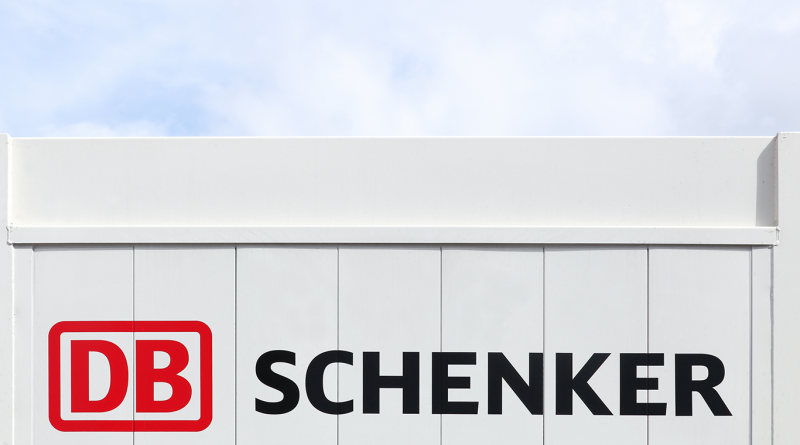How DSV’s $15.9 Billion DB Schenker Acquisition Made It the Largest Freight Forwarder
In September 2024, Danish logistics giant DSV made headlines with its acquisition of DB Schenker, the logistics arm of Deutsche Bahn, in a deal valued at $15.9 billion. This monumental transaction positions DSV as the world’s largest freight forwarder, surpassing global competitors such as DHL Logistics and Kuehne + Nagel. With this deal, DSV aims to capture an estimated 6-7% of the fragmented global logistics market.
DSV’s growth trajectory, driven by a series of strategic acquisitions since its humble beginnings in 1976, reflects the company’s ability to integrate and scale operations effectively. According to Jens Lund, DSV’s CEO, this is the largest acquisition in the company’s history, further solidifying its global reach and influence. The merger also promises a new era for the global logistics landscape, as DSV plans to leverage its increased capacity and operational scale to offer enhanced services.
The Strategic Importance of the Acquisition
DB Schenker’s sale by Deutsche Bahn was part of the German state rail operator’s broader strategy to streamline operations and reduce debt. With its extensive global network and expertise in freight forwarding, Schenker represents a valuable asset to DSV, whose goal is to expand its presence in critical logistics hubs worldwide. This acquisition will bolster DSV’s market share and help it capture a significant portion of the logistics market that has seen post-pandemic shifts in demand.
One of the key benefits of this merger lies in its synergies. DSV plans to integrate DB Schenker’s network of over 90 countries into its existing operations, allowing it to serve more clients and streamline logistics processes globally.
Despite the massive scale of this acquisition, DSV has a proven track record of successfully absorbing large companies, having previously integrated Panalpina in 2019.
A Closer Look at DSV’s Strategy
Financing such a massive acquisition requires careful planning and strategic financial maneuvering. DSV is set to fund the $15.9 billion transaction through a combination of equity raising and debt financing.
The company plans to raise between $4.25 billion and $5.3 billion via share sales, while the rest will be covered through loans. This approach reflects DSV’s established financial discipline, honed through previous acquisitions like Panalpina, where similar financing strategies were employed.
One key factor that sets DSV apart from rivals like CVC Capital Partners, who also bid for DB Schenker, is its ability to access capital markets more easily. CVC’s bid, though slightly higher, came with complexities involving ongoing German government involvement. DSV’s straightforward cash offer, combined with its proven record of integrating acquisitions, made it the preferred choice for Deutsche Bahn.
DSV’s Path to Global Leadership
DSV’s acquisition of DB Schenker is set to reshape the global logistics industry. By absorbing Schenker’s extensive network, DSV will expand its footprint significantly, especially in key markets across Europe, North America, and Asia.
This move will give DSV a stronger foothold in the highly fragmented freight forwarding industry, allowing the company to serve a wider range of clients and offer more competitive rates. With DSV now holding a dominant position, smaller players in the logistics space may struggle to compete. DSV’s competitors, such as DHL Logistics and Kuehne + Nagel, are likely to respond with their own strategic moves to maintain market share.
The broader industry is still recovering from the post-pandemic slump in demand, but this deal could signal renewed confidence in the growth potential of global supply chains.
Labor Concerns and Regulatory Approvals
While the DSV-Schenker deal promises to create the largest freight forwarding company in the world, it has not been without controversy. Labor unions in Germany, where DB Schenker employs approximately 15,000 workers, expressed concerns over potential job losses. DSV announced that it plans to cut between 1,600 and 1,900 jobs within Schenker’s German operations. However, DSV’s Chief Financial Officer, Michael Ebbe, has assured stakeholders that despite these cuts, the company will invest $1.06 billion in Germany over the next five years.
To mitigate union resistance, DSV has also agreed to provide $10.6 million in additional compensation for Schenker’s employees. This move is aimed at calming fears of mass layoffs and ensuring a smoother transition.
The acquisition still requires regulatory approval from German authorities and the European Union. Both Deutsche Bahn’s supervisory board and Germany’s transport ministry must give the green light before the deal can proceed. DSV expects the acquisition to close by the second quarter of 2025, assuming there are no major regulatory hurdles.
Sources:
